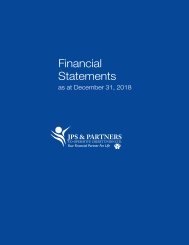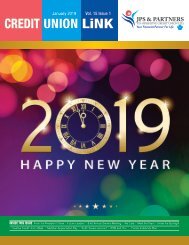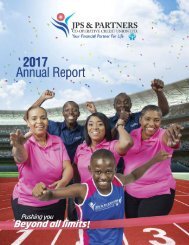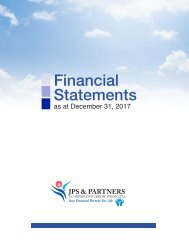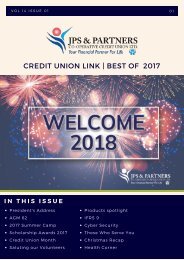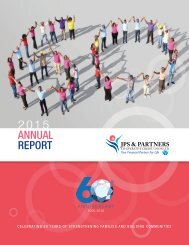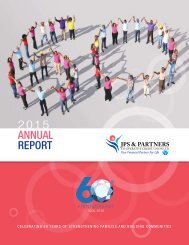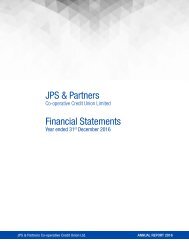Credit Union Link 2020
Create successful ePaper yourself
Turn your PDF publications into a flip-book with our unique Google optimized e-Paper software.
IDENTITY THEFT and YOU.
Protect your Identity
Due to the effects of the
COVID-19 pandemic more
and more persons have
started to do business
online. Within the financial
arena more and more
institutions have been
pushing e-commerce and
more virtual transactions.
With this increase of online activities,
it is becoming more prudent for
persons to be aware of and guard
against identity theft. Identity theft is
a crime in which an impostor obtains
key pieces of personal identifying
information (PII) such as Tax
Registration numbers and driver's
licence numbers and uses them for
his own personal gain. It can start
with lost or stolen wallets, stolen
mail, a data breach, computer virus,
“phishing” scams, or paper
documents thrown out by you.
How can you minimize my risk of
becoming an identity theft victim?
As consumers, you have little ability
to stop or prevent identity theft.
However, there are some positive
steps to take which will decrease
your risk.
I. Don’t give out your TRN or NIS
unnecessarily (only for tax
reasons, credit or verified
employment.) Before providing
personal identifiers, know how it
will be used and if it will be
shared.
II. Use a cross-cut shredder to
dispose of documents with
personal information. You can also
tear it into multiple tiny pieces.
Also, use a specialized gel pen
when writing out checks.
III. Know your billing cycles and
contact creditors when bills fail to
show up. Review bank and credit
card statements carefully.
IV. Password protect your financial
accounts. A strong password
should be more than eight
characters in length, and contain
both capital letters and at least
one numeric or other nonalphabetical
character. Use of
non-dictionary words is also
recommended.
V. Don’t give out personal
information on the phone, through
the mail or over the Internet
unless you initiated the contact
and have sufficient trust in the
person you are communicating
with.
VI. Use firewall software to protect
computer information. Keep virus
and spyware software programs
updated.
Always remember to:
Strengthen passwords. (Use at
least 8 characters, alpha numerics,
symbols and upper/lower case
letters.)
Handle personal identification
with care. (Don’t give out personal
identification information unless
absolutely necessary.)
Read your credit card and bank
statements carefully and as
frequently as you can.
Empty your purse and wallet. Do
not carry more than is necessary.
Discuss these tips with your
family, co-workers and friends.
CONTACT US
65 3 ⁄4 HALF WAY TREE RD.
KINGSTON 10
EWARTON WORKS
ST. CATHERINE
KIRKVINE
KIRKVINE WORKS
MANCHESTER
876-881-8807 | wecare@jpscu.com | 876-968-3700/1115 | www.jpscu.com
OUR EXECUTIVES
Donovan Cunningham - President
David Fleming - Vice President
Deborah Campbell - Treasurer
Dacia Barnes-Young - Assistant Treasurer
Tricia Robinson - Secretary
Clive Segree - Assistant Secretary






